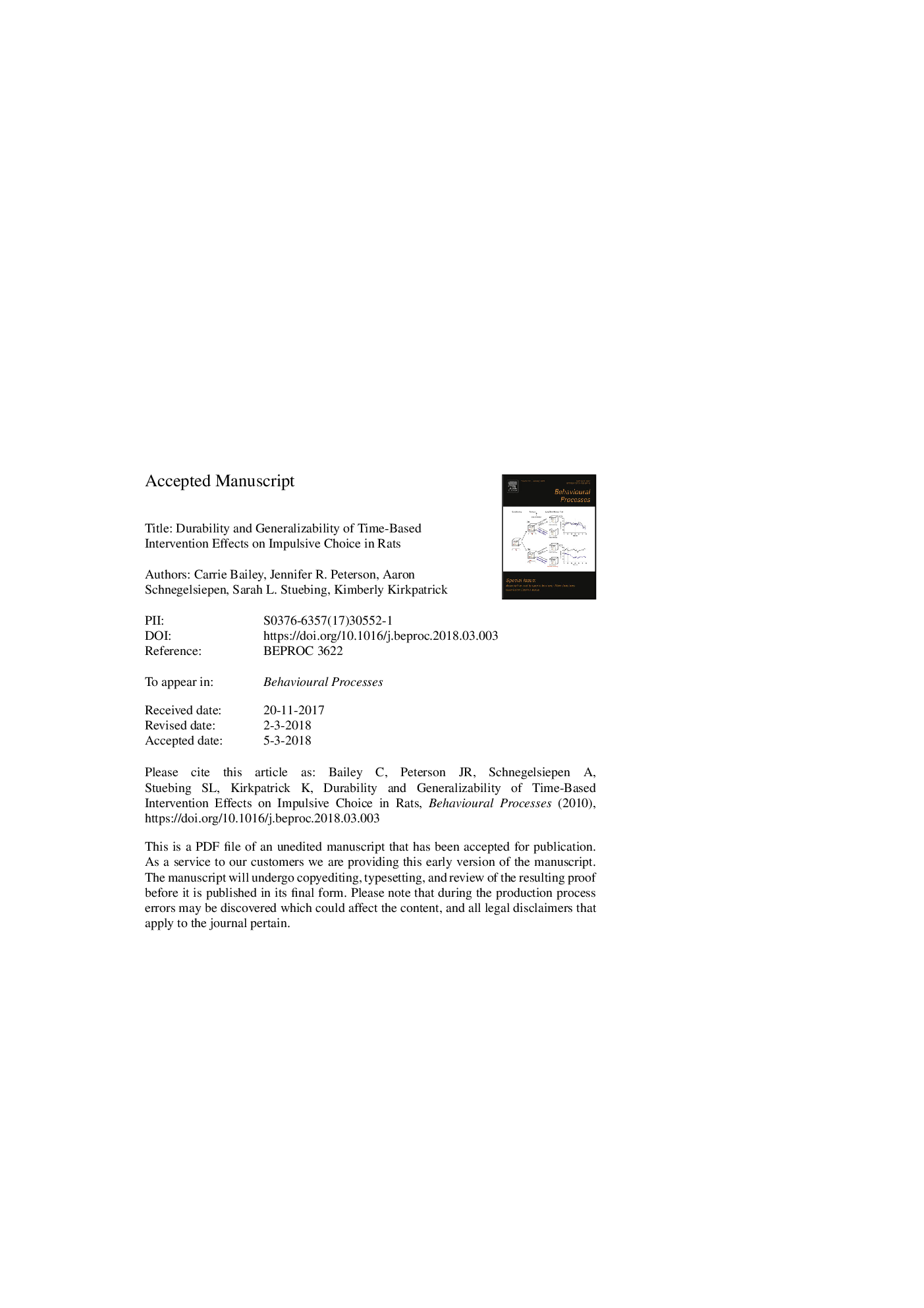| Article ID | Journal | Published Year | Pages | File Type |
|---|---|---|---|---|
| 8496952 | Behavioural Processes | 2018 | 41 Pages |
Abstract
Impulsive choice involves choosing a smaller-sooner (SS) reward over a larger-later (LL) reward. Due to the importance of timing processes in impulsive choice, time-based interventions have been developed to decrease impulsive choice. The present set of experiments assessed the durability and generalizability of time-based interventions. Experiment 1 assessed fixed interval (FI) or variable interval (VI) intervention efficacy over 9 months. The FI intervention decreased impulsive choice, and this effect persisted over time, but the VI intervention effects were only apparent when tested immediately after the intervention. Experiment 2 examined the generalizability of the FI and VI interventions on choice tasks manipulating the SS delay, LL delay, or LL magnitude. The FI intervention decreased sensitivity to delay, promoting LL choices in both delay tasks, but the VI intervention only altered choices when manipulating the SS delay. Experiment 3 further examined the FI intervention effects on tasks that manipulated the LL delay or magnitude immediately following the intervention. The intervention decreased sensitivity to both delay and magnitude. The experiments indicate that the FI intervention is effective at decreasing impulsive choice behavior for an extended period across changing delays and magnitudes, suggesting a relatively broad effect on choice behavior.
Related Topics
Life Sciences
Agricultural and Biological Sciences
Animal Science and Zoology
Authors
Carrie Bailey, Jennifer R. Peterson, Aaron Schnegelsiepen, Sarah L. Stuebing, Kimberly Kirkpatrick,
